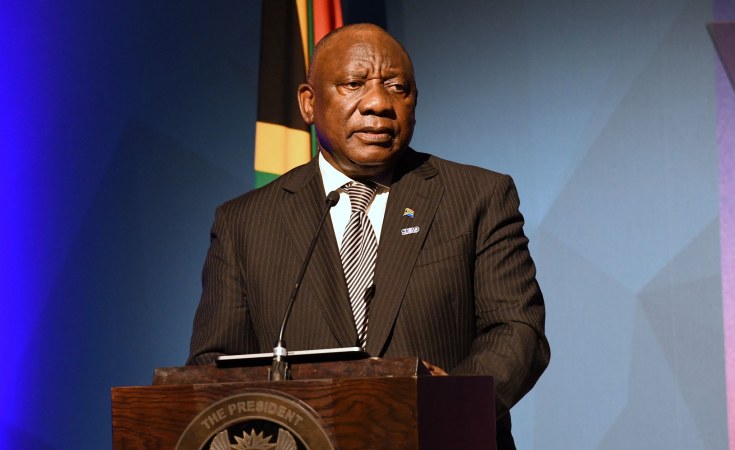President Cyril Ramaphosa has emphasised the importance of the National Health Insurance (NHI) in providing equal access to healthcare services and addressing inequalities.
This, as he signed the NHI Bill into law on Wednesday.
"[The Bill] is also about efficiency and quality. The provision of healthcare in this country is currently fragmented, unsustainable and unacceptable," President Ramaphosa said, adding that he finally "found his pen" to sign the long-awaited Bill.
READ | Somebody give me a pen! - President
At its core, the country's leader stated that health insurance is a commitment to eliminating the longstanding, severe disparities in healthcare access.
"The NHI is an important instrument to tackle poverty. The rising cost of health care makes families poorer. By contrast, healthcare provided through the NHI frees up resources in poor families for other essential needs."
He believes that the NHI will make healthcare in the country more affordable.
"The way healthcare services will be paid for is meant to contain comprehensive healthcare costs and to ensure the available resources are more efficiently used."
President Ramaphosa described the public signing of the NHI Bill into law as a pivotal moment and a milestone in South Africa's ongoing quest for a more just society.
WATCH | President Cyril Ramaphosa signs into law the National Health Insurance Bill
The President said the public sector serves most of the population but faces budget constraints. In contrast, he said the private sector serves a fraction of society at a far higher cost without a proportional improvement in health outcomes.
He believes that tackling the imbalance requires a radical "reimagining" of resource allocation.
Meanwhile, he said the challenge in implementing the NHI lies not in the lack of funds, but in the misallocation of resources that currently favours the private health sector at the expense of public health needs.
He is of the view that the NHI Bill presents an innovative approach to funding universal healthcare based on social solidarity.
This, he said, proposes a comprehensive strategy that combines various financial resources, including both additional funding and reallocating funds already in the health system.
Special Report | National Health Insurance: All you need to know
The Head of State strongly believes that financial hurdles facing the NHI can be navigated with careful planning, strategic resource allocation and a steadfast commitment to achieving equity.
He also explained that the NHI Fund will procure services from public and private service providers to ensure all South Africans have access to quality healthcare.
In addition, he said that health insurance ensures that both the public and private sectors complement and reinforce each other.
"The effective implementation of the NHI depends on the collective will of the South African people. We all need to embrace a future where healthcare is a shared national treasure, reflective of the dignity and value we accord to every South African life."
According to President Ramaphosa, government has already begun implementing a national quality improvement plan in public and private healthcare facilities, and is now seeing improvement.
"Even in areas where we never thought [we would] see improvement, we see improvement of health facilities, even in our townships, where old people go to get critical medication."
In addition, he said government would now establish the systems and put in place the necessary governance structures to implement the NHI, based on the primary healthcare approach.
The President has urged people not to fear, as the NHI will be implemented gradually rather than as "an overnight event".
"The NHI is an opportunity to make a break with the inequality and inefficiency that has long characterised our approach to the health of the South African people. Let us work together, in a spirit of cooperation and solidarity, to make the NHI work."


